9 times clubs REALLY regretted letting a star join their rivals
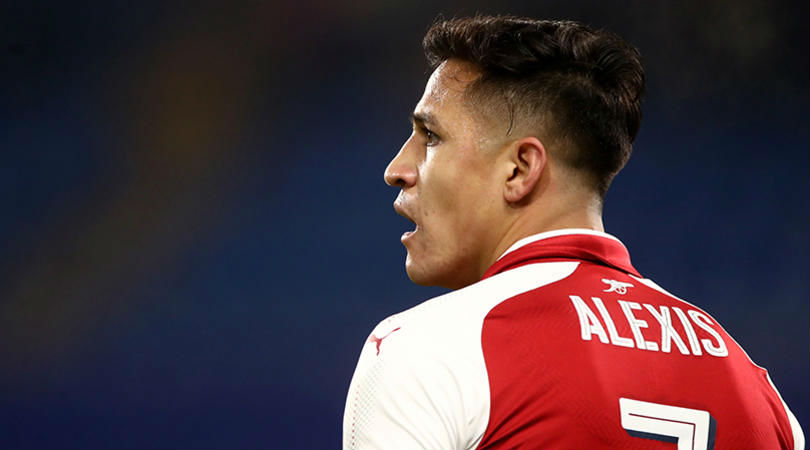
"Taxi to Manchester..."
Oh Arsenal, not again: If reports are to be believed, Alexis Sanchez looks all set for a Manchester United move this week. That would mean him following Gael Clichy, Samir Nasri, Emmanuel Adebayor, Robin van Persie and Bacary Sagna, among others, up the West Coast Main Line from Euston to Piccadilly.
But it's not just Arsenal sending their goods north: plenty of clubs have handed their rivals a crown jewel. And while transfers are inevitable in football, it’s not always the right move from the selling club’s perspective. Here we take a look at what happened when these nine high-profile players moved to a direct rival.
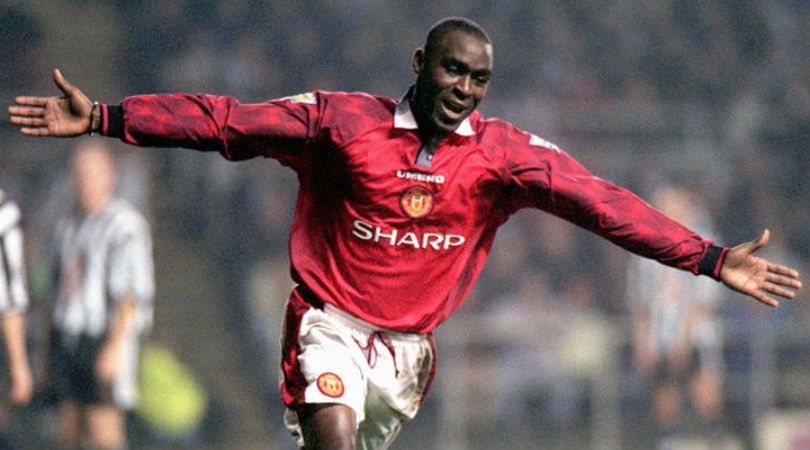
Andy Cole (Newcastle to Manchester United, 1995)
In January 1995, Newcastle boss Kevin Keegan decided that he no longer wanted Andy Cole, the striker who'd scored 55 goals in 70 league matches for the Magpies. Cole had been a force of nature at the head of Keegan’s attack-happy side, but the manager believed that something had changed in his star man.
Tensions ran high between the pair when Keegan suggested Cole hadn't been training at an acceptable level – and then, in January 1995, Tyneside was rocked when Newcastle accepted an offer of £6m (plus Keith Gillespie) from Manchester United for Cole.
Cole went on to win five Premier League titles with United, while the Magpies never fully recovered from a spectacular capitulation during the 1995/96 season that allowed the Red Devils – and Cole – to triumph.
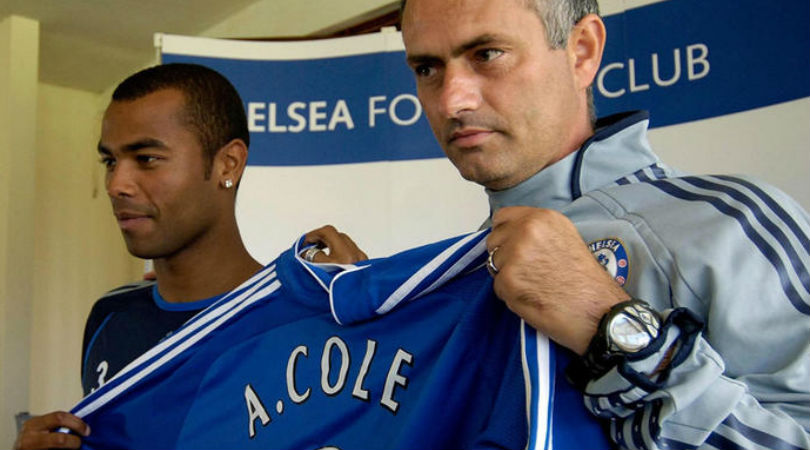
Ashley Cole (Arsenal to Chelsea, 2006)
In September 2006, the two London giants agreed a swap deal that took Ashley Cole to Stamford Bridge, with William Gallas (and £5m) going in the other direction. It proved to be one of the most controversial Premier League transfers, with Chelsea eventually found guilty of tapping up the England defender - and fined by the FA.
A few months after the move, Cole released his autobiography in which he revealed the moment he nearly swerved off the road at hearing Arsenal’s £55k-per-week contract offer.
It was a transfer that defined the contrasting trajectories of the two clubs. Chelsea, bankrolled by Abramovich’s billions, had real pulling power, while Arsenal’s status among the Premier League’s elite was under threat despite the 2004 Double and 2005 FA Cup win. The animosity directed at Cole by Arsenal fans was legendary, but it did little to stop him as he became one of the world's finest left-backs and achieved his objective of “winning things” with the Blues. Arsenal, meanwhile, didn't win another trophy until 2014.
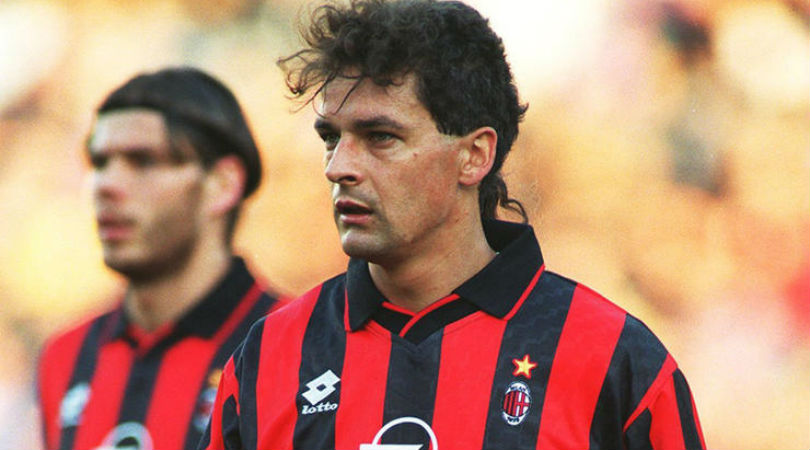
Roberto Baggio (Juventus to Milan, 1995)
Winning the Scudetto in 1995 was the apex of Baggio’s stay at Juventus – but he didn’t hang around to celebrate. Instead, the Divine Ponytail became the crown jewel in Milan’s quest to become Italy’s best once again.
At 28, Baggio had enjoyed his finest years in Turin and Alessandro Del Piero was the emerging star, yet selling him to a direct rival was not ideal. Juve fans were furious at the decision, as Baggio was allowed to join Fabio Capello’s Milan for £6.8m.
Although he wasn't the undisputed superstar at Milan, the Rossoneri won the following Serie A title with the help of some crucial goals from Baggio.
Juve's regret at allowing Baggio to leave was short-lived: in Baggio's absence they got to experience the full potential of Del Piero, who guided them to Champions League glory in 1996 and the Serie A title two years later.
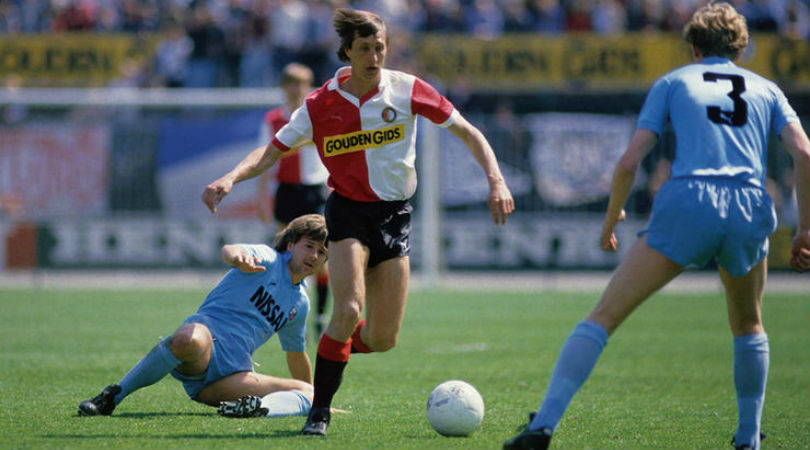
Johan Cruyff (Ajax to Feyenoord, 1983)
A bona fide legend at Ajax, Cruyff would have been forgiven for thinking he was untouchable in Amsterdam. He was 36 in the summer of 1983 and had just helped Ajax win the double, but the Amsterdammers dragged their feet over giving their greatest-ever player a new contract.
The man who'd shaped Ajax’s destiny as much as anyone was apoplectic. His response to the club he'd served so immaculately was an emphatic middle finger – by signing for their biggest rivals Feyenoord.
The Rotterdam giants had consistently underachieved in the decade after winning the league and UEFA Cup in 1974, but Cruyff helped them to their first title since, plus a KNVB Cup, and was named Dutch Player of the Year. His spat with Ajax was short-lived, though - he returned as coach and changed the game forever.
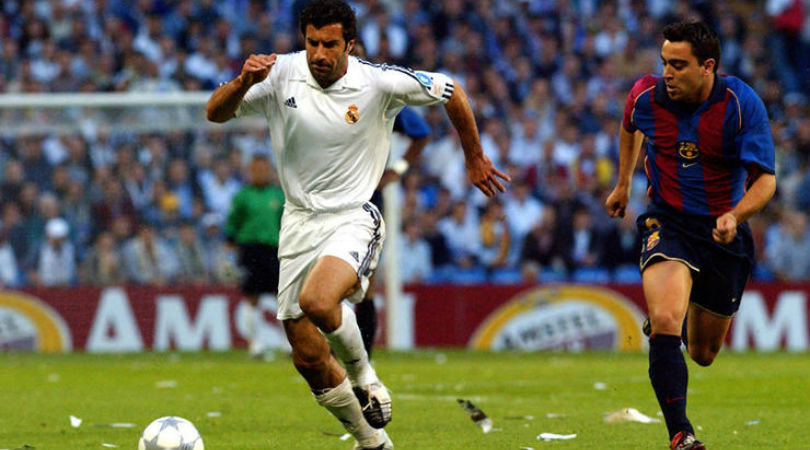
Luis Figo (Barcelona to Real Madrid, 2000)
Feeling under-appreciated in Catalonia, Figo decided to up sticks and move to bitter rivals Real Madrid in a world-record £37m deal. It proved to be one of the most acrimonious transfers in the history of the game, culminating in Figo being bombarded with objects thrown from the crowd upon his return to the Camp Nou - including, infamously, a pig's head.
Figo’s arrival at the Bernabeu signalled the beginning of the Galactico era and Barça’s sense of betrayal was exacerbated when Figo won the Ballon d’Or in November 2000, largely for what he'd done in the Blaugrana of Barcelona.
Seven months later, he was lifting the Liga trophy in the white of Real Madrid. Zinedine Zidane soon joined the Portuguese at the Bernabeu as Madrid won the 2002 Champions League title, with Figo an influential figure throughout their campaign.
Barcelona didn’t win the league title again until 2005.
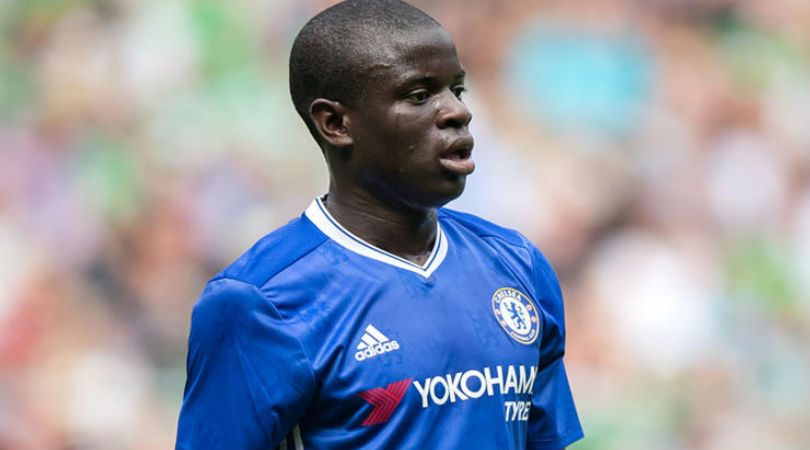
N’Golo Kante (Leicester to Chelsea, 2016)
Leicester City and Chelsea are hardly the bitterest of rivals - but the context and repercussions of this deal are key. An oversimplified take on Kante and Leicester goes a little something like this: they were outstanding with him and hopeless for months following his departure.
Naturally, Chelsea were keen to rebuild under Antonio Conte after a dismal title defence – and believed Kante was a crucial piece of the jigsaw. Leicester needed to retain their best players if they were to put up a reasonable defence of their title, but were left powerless when Kante expressed a desire to leave. It was soon proved just how important he was, though, with the Foxes’ decline and Chelsea’s immediate domestic superiority.
Leicester failed to plug the Kante-sized hole in the centre of their midfield and, with the threat of relegation looming large, Ranieri paid the price. Leicester won 12 Premier League games all season and ended up 12th.
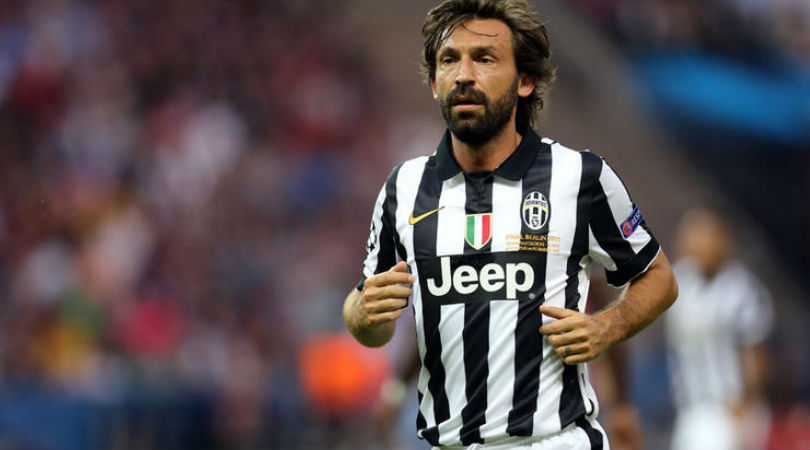
Andrea Pirlo (Milan to Juventus, 2011)
The idea that Pirlo, one of the finest midfielders to grace a football pitch in the history of the game, would be deemed surplus to requirements beggars belief, but that’s exactly what the powers at Milan thought in 2011.
The playmaker had been integral to Milan’s success in the 2000s, helping them to two Serie A titles and the Champions League twice but the Bianconeri were a club on the up. New Juve boss Antonio Conte took Pirlo to Turin, with a new stadium and a fantastic squad determined to reestablish Juve as Italy's top side. Pirlo helped them achieve exactly that, making 13 assists as the Bianconeri finished the 2011/12 league season unbeaten to clinch their first title in nine years.
Juventus went on to win four consecutive titles, with the peerless Pirlo at the heart of the team – all while Milan tumbled spectacularly into decline. CEO Adriano Galliani would eventually admit that allowing Pirlo to leave was his biggest mistake in football.
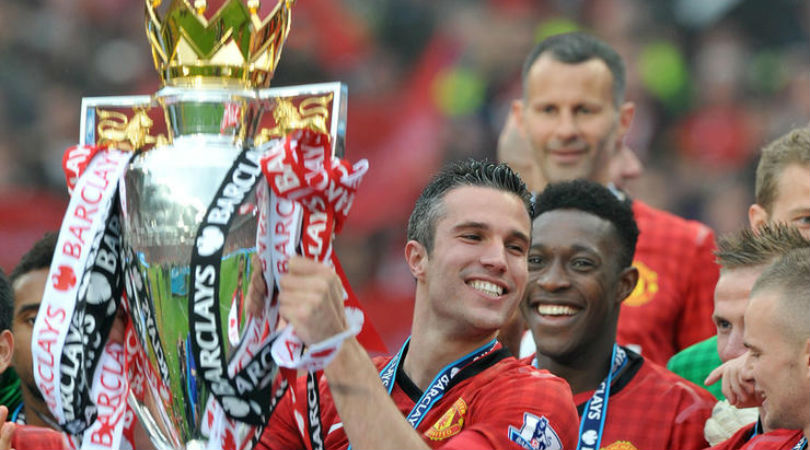
Robin van Persie (Arsenal to Manchester United, 2012)
Arsenal’s business model has made them look like a selling club at times, having been powerless to prevent key players like Patrick Vieira, Thierry Henry and Cesc Fabregas from joining those clubs more predisposed to splashing the cash.
In 2011/12, Gunners captain Van Persie was the Premier League's 30-goal top scorer, bagging against 17 different league opponents – then announcing his intention to leave. A Juventus bid was deemed insufficient, but Manchester United's bigger offer obliged the Arsenal board to sell. They believed that £24m for a 29-year-old with a history of injury problems was good business, and Arsene Wenger felt the position was adequately covered with Olivier Giroud and Lukas Podolski.
Ferguson not only strengthened United but weakened Arsenal significantly - as well as preventing Manchester City boss Roberto Mancini from signing a player he'd courted all summer. It proved to be one final masterstroke from the United boss as the Dutchman score 26 goals and led United to their 20th league title. Arsenal, meanwhile, just sneaked into the top four.
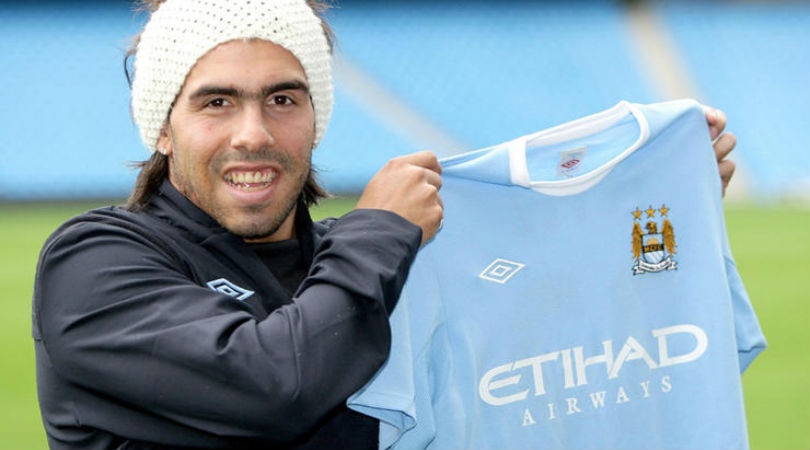
Carlos Tevez (MSI/West Ham/Manchester United to Manchester City, 2009)
Adored by fans after excelling in Manchester United's Champions League-winning 2007/08 campaign, the Argentine grew increasingly irritated when his efforts on the pitch didn't result in a permanent deal at the club. Tevez promptly signed for Manchester City and immediately took aim at Fergie. City, much to the delight of their supporters, took full advantage with the now infamous 'Welcome to Manchester' campaign.
Ferguson responded by saying that Tevez wasn't worth the money City paid for him. The Argentine rather disproved the thesis by scoring 52 goals in his first two seasons at the Etihad, but it was his third year in sky blue that sticks in the craw of United fans. After refusing to come on as a substitute in a Champions League game against Bayern Munich in 2011, the Argentinian was widely condemned. Priced out of a January move away from the Etihad with Milan interested, Tevez returned from his self-imposed five-month exile and played a pivotal role in City clinching their first title in 44 years.
